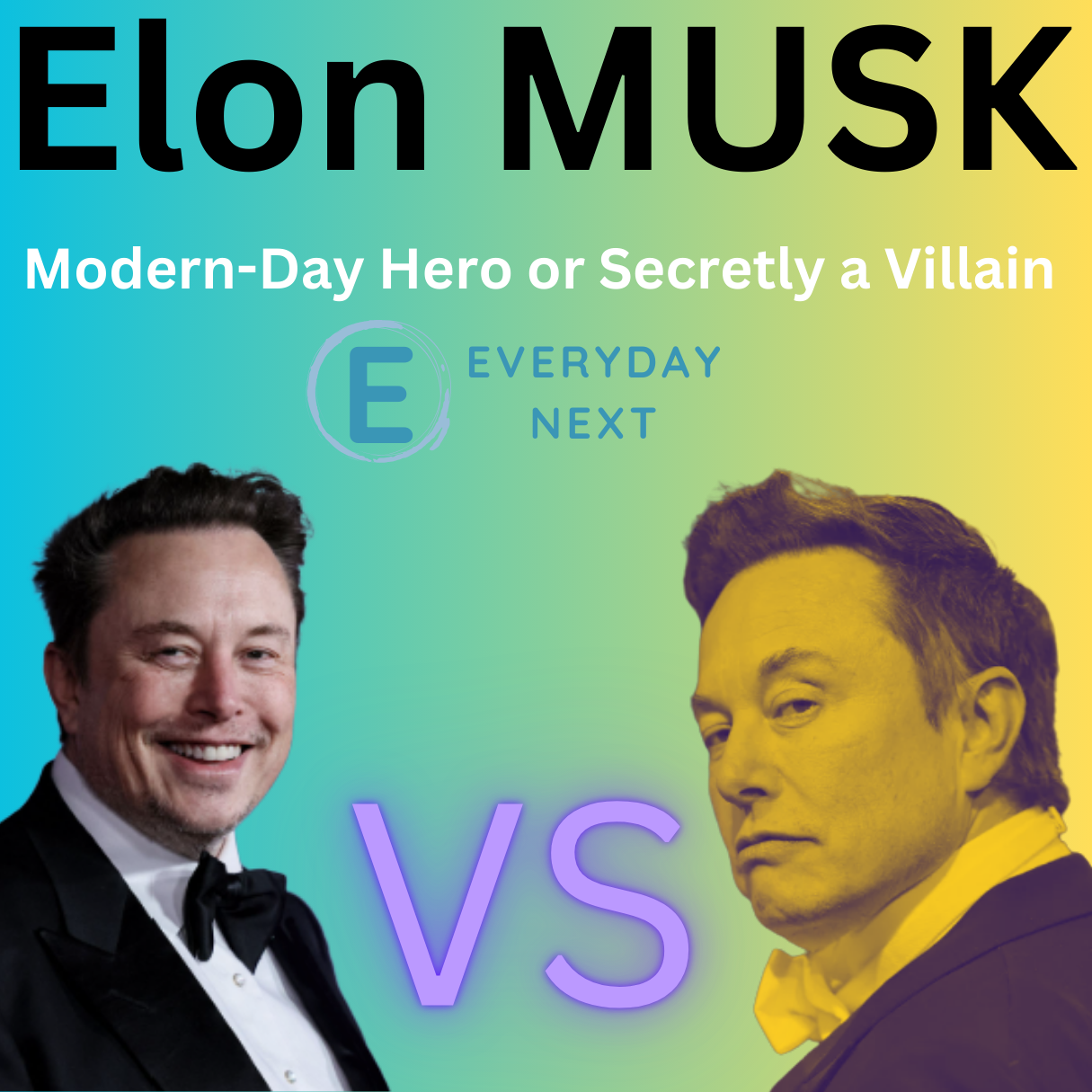
Elon Musk A Hero or A Villain? The Truth
Table of Contents
Elon Musk, the billionaire tech visionary rumored to have an IQ off the charts, is obvious, provocative, maybe even a little crazy, and definitely a workaholic. Some people might write him off as insane, yet there’s no denying his genius on some level. Of course, genius doesn’t necessarily mean good or bad—it just means he is who he is.
Armed with a drive to fix everything from government inefficiency to road traffic, he’s pushing us toward a future where humans become a multi-planet species. His dream of colonizing Mars might sound like sci-fi to many, but then again, so did AI-powered self-driving cars—until he made those a reality before anyone else.
Still, it’s hard to ignore the concerns some people have: Does one person need—or deserve—this much power? Whether you see him as a hero, a menace, or something in between, there’s no denying that Elon Musk is changing the world at breakneck speed. The question remains: Are we ready for it?
Rough Childhood in South Africa
To know more about Elon, we need to know his childhood, He has faced Physical and Emotional Bullying, Musk has shared that he was severely bullied. In one incident, he was pushed down a flight of stairs and beaten so badly that he was hospitalized. He was known as a bookish introvert who loved reading sci-fi and playing with computers—interests that set him apart from many peers. Despite the bullying, Musk found refuge in books and computers. He taught himself programming and even sold the code for a video game called Blastar when he was only 12.

In this South African snapshot, Elon Musk (on the left) poses alongside his siblings, Kimbal and Tosca. (Photo courtesy of Maye Musk)
His relationship with his Father was not great, Elon has described his father as “terrible human being” but admits that his father was both charismatic and unkind.
Many believe his difficult childhood experiences and desire for a new start in North America fueled his ambitious nature and relentless work ethic.
While “rough childhood” can be subjective, it’s clear that Elon Musk faced significant challenges growing up—from severe bullying to a turbulent family environment. These formative experiences likely helped mold the relentless innovator the world sees today, for better or worse.
Elon Musk grew up in an unquestionably racist system under apartheid South Africa, but no credible evidence suggests he embraced or supported that system. On the contrary, leaving South Africa at a young age was in part a rejection of apartheid and its compulsory military service. While being white under apartheid afforded him certain systemic privileges, that alone doesn’t imply he was personally racist—only that he was born into a society structured around racial oppression.
From an early age, he was fascinated by science fiction, space travel, and the idea of improving humanity through technology—interests that would later shape his future endeavors like SpaceX, Tesla, and more
Musk left South Africa at age 17, partly because he disagreed with the system and wanted to pursue better opportunities elsewhere (initially in Canada, then in the U.S.).
Tough Start in Canada
Musk arrived in Canada at age age 17 (1989) with minimal resources. He initially stayed with relatives and friends while figuring out his next steps. He took various labor-intensive jobs, such as shoveling grain in a wheat bin and working at a lumber mill. These physically demanding roles helped him earn money to support himself. At times, Musk lived very modestly—he’s shared stories of having to bunk with multiple roommates or relatives in small apartments.
In 1990, Musk enrolled at Queen’s University in Kingston, Ontario. This was his first formal step into North American academia, finances were tight. Musk reportedly took on debt, worked jobs, and relied on scholarships to get by. During his two years at Queen’s, he began forming friendships and networks—skills that would later prove valuable in the tech and startup worlds.

According to Queens Alimini Review Elons said “I was going to do physics and engineering at Waterloo, but then I visited the campus … and, you may not want to print this,” he says with a laugh, “but there didn’t seem to be any girls there! So, I visited Queen’s, and there were girls there. I didn’t want to spend my undergraduate time with a bunch of dudes” His keen eye for members of the opposite sex indeed proves his multi relationships when later in life
Elon Musk’s Canadian chapter often gets overshadowed by his high-profile ventures in the U.S., but it was a formative period marked by hard physical labor, financial struggles, and important academic pursuits. His resilience, shaped by these early experiences, laid the groundwork for the ambitious goals and relentless work ethic he would become famous for in Silicon Valley and beyond.
United States
After two years at Queen’s, Musk transferred to UPenn in 1992. There, he pursued degrees in physics and economics. His love for innovation and problem-solving, laying the conceptual groundwork for his future ventures in aerospace (SpaceX) and energy (Tesla). Like many students aiming for Silicon Valley, Musk used internships and academic connections to get closer to the tech scene—though he later admitted rejections taught him resilience.
Musk was accepted into a PhD program in materials science at Stanford University but dropped out after just two days. He felt the internet boom was happening now and didn’t want to miss it. The mid-90s tech explosion in the Bay Area gave Musk an electrifying environment for entrepreneurship. This setting amplified his ambition and desire to build something transformative.
Startup Journey
Elon and his brother, Kimbal, co-founded Zip2 1995, a company providing online city guides and directory services to newspapers. With little money to spare, they worked from a small office and sometimes even slept there. Tech infrastructure was still primitive compared to today, and raising capital was an uphill battle. Compaq acquired Zip2 in 1999 for $307 million in cash and stock. Elon’s share—around $22 million—gave him the financial freedom to launch new ventures.
Musk founded X.com 1999 to revolutionize online financial transactions. It merged with Confinity (co-founded by Peter Thiel and Max Levchin) and eventually became PayPal. Musk’s leadership style clashed with other executives, leading to his ouster as CEO – an experience that taught him the importance of managing both vision and internal politics.
Paypal was sold to eBay for $1.5 billion. Musk received roughly $180 million, setting the stage for his next massive ventures.
Despite internal power struggles, the PayPal experience refined Musk’s ability to scale a tech company quickly and handle complex logistical challenges.
Building SpaceX, Tesla & More
Founding SpaceX (2002)
- Mars Ambitions: Musk funneled much of his PayPal windfall into establishing Space Exploration Technologies Corp. (SpaceX). His goal was—and still is—to make humanity a multi-planetary species.
- Early Failures: SpaceX’s first three rocket launches ended in failure. Musk faced near-bankruptcy as he poured personal funds into keeping the company alive. The successful fourth launch in 2008 landed a lucrative NASA contract, securing SpaceX’s future.
Joining Tesla (2004)
- Early Investor & Eventually CEO: Musk led the Series A round of investments in Tesla, an electric car startup. He took over as CEO in 2008.
- Financial Crisis (2008): The global economic downturn nearly sank Tesla and SpaceX simultaneously. Musk has recounted sleeping on friends’ couches to save money for his companies. Eventually, last-minute deals and strategic investments kept both afloat.
Expanding the Portfolio
- SolarCity: Musk’s cousins co-founded SolarCity with his backing to advance solar energy solutions.
- Neuralink & The Boring Company: Musk ventured into neural tech (merging human brains with AI) and tunneling solutions to reduce traffic congestion. These companies illustrate his ongoing strategy of tackling massive, systemic challenges.
Elon Musk The Hero

Elon Musk could be called a hero not merely for his staggering net worth or bold ambitions, but for the way he has reshaped humanity’s sense of possibility. By championing electric vehicles before they were mainstream and pouring heart and soul into rockets that can land themselves, he has shown that radical ideas—often dismissed at first—can be made real through tenacity and engineering brilliance. More than just a high-profile billionaire, Musk carries a near-audacious belief that our problems on Earth, from energy shortages to traffic nightmares, are solvable, and that we can even aspire to live on another planet. This unwavering optimism, bolstered by tangible achievements in technology, business, and space exploration, is what elevates him beyond a mere entrepreneur and puts him in the realm of a modern-day visionary, one who inspires us to think bigger than our current boundaries.
One notable example of Elon Musk’s heroism lies in his decision to provide Starlink satellite internet access to regions affected by conflict or disaster, such as war-torn areas in Ukraine. By swiftly delivering a lifeline of connectivity that governments and traditional ISPs struggled to offer, Musk demonstrated a willingness to leverage private-sector technology for urgent humanitarian support. This rapid deployment of Starlink terminals helped keep citizens connected to vital news, loved ones, and rescue organizations, showcasing how Musk’s audacious visions can translate into life-saving action in real-world crises.
Elon Musk The Villain

Elon Musk can be seen as a villain because his relentless drive to innovate often comes at the expense of employees, competitors, and even the broader social fabric. Critics point to Tesla’s reported workplace pressures, his bold dismissal of regulatory frameworks, and his sometimes flippant social media behavior—which can move markets and impact countless livelihoods overnight—as evidence of a ruthless streak that prioritizes progress over people. His grand visions, while undeniably inspiring, often overshadow the day-to-day ethical consequences of how those visions are pursued, from allegations of unsafe working conditions to hasty management decisions at Twitter (X) that leave employees and users scrambling. In this sense, Musk’s bulldozer approach to disruption stands as a cautionary tale of unchecked ambition, where the singular focus on advancing technology risks trampling over the human elements that fuel a more balanced innovation.
Elon Musk’s relationship with Dogecoin has often been cited as an example of how his influence can veer into “villain” territory. Whenever Musk tweets about—or even references—the meme-based cryptocurrency, the price can skyrocket or tumble, leaving everyday investors at the mercy of his online pronouncements. Critics argue that this is a form of market manipulation: a billionaire casually wielding his massive social media following to shift financial outcomes, sometimes leaving smaller investors holding the bag after rapid price shifts. Lawsuits have even alleged that he artificially inflated Dogecoin’s value for personal gain. In this sense, Dogecoin serves as a microcosm of Musk’s polarizing impact—his audacious visions and ability to rally crowds can morph into reckless meddling, showing how easily innovation can blur into exploitation when left unchecked.
His Recent involvements and working with Trump has brought his popularity down, specially with the work on the Department of Government Efficiency
Bottom line
In the end, Elon Musk’s path from bullied dreamer in Pretoria to Silicon Valley powerhouse is more than a tale of personal reinvention; it’s a testament to how grit, curiosity, and unshakable vision can converge to reshape not just one life, but entire industries.
Elon Musk’s story in the U.S. is as much about relentless ambition as it is about near-disastrous setbacks. He’s credited with driving forward game-changing technologies—space travel, electric vehicles, solar energy—yet criticized for his intense leadership style and the immense power he wields. Whether you see him as an innovative hero or a disruptive villain may hinge on how you balance the undeniable benefits of his vision against the moral and societal costs. Regardless, there’s no denying the transformative impact he’s had on tech and culture.
The Most Frequent Questions About Elon Musk
Who is Elon Musk?
Elon Reeve Musk (born June 28, 1971) is a South African–born entrepreneur, inventor, and business magnate. He is the CEO of Tesla and SpaceX, owner of Twitter (rebranded as X), and founder or co-founder of various tech companies including Neuralink and The Boring Company.
Where is Elon Musk from? / Where was Elon Musk born?
- From: Pretoria, South Africa.
- Born: Pretoria, South Africa, on June 28, 1971.
When did Elon Musk come to America?
He initially moved to Canada at age 17 (1989), then transferred to the United States in 1992 to attend the University of Pennsylvania.
Can Elon Musk run for President?
No. The U.S. Constitution requires the president to be a natural-born U.S. citizen. Elon Musk became a naturalized citizen in 2002, which does not satisfy the “natural-born” criterion.
Can Elon Musk run for President in 2028 or 2032 Ever?
No. For the same constitutional reasons above, he is ineligible to become U.S. President or Vice President.
Can Elon Musk be deported?
No. He is a naturalized U.S. citizen, so he cannot be deported under normal circumstances.
Can Elon Musk vote in the United States?
Yes. As a U.S. citizen, he can vote in presidential and other elections.
Net Worth & Earnings
What is Elon Musk’s net worth? / How much is Elon Musk worth?
Elon Musk’s net worth fluctuates with the stock market, primarily due to his shares in Tesla and SpaceX. Over the last couple of years, his net worth has ranged roughly between $180 billion and $250+ billion, making him one of the richest individuals in the world.
Will Elon Musk become a trillionaire?
Some financial analysts speculate he could become the world’s first trillionaire if Tesla, SpaceX, and other ventures grow significantly. However, this is not guaranteed, However Musk believes Tesla won’t just be the most valuable company in the world but it could be worth more than the next top five companies combined. so Yes it is Possible
Current Residence & Living Situation
Where does Elon Musk live? / Where is Elon Musk today?
He has stated that his primary residence is a modest home near the Starbase facility in Boca Chica, Texas (close to SpaceX’s launch site). He also spends time in Austin (near Tesla’s headquarters) and travels frequently between various company locations.
Family & Relationships
Who are Elon Musk’s parents? Are they rich? Are they still alive?
- Father: Errol Musk, a South African electromechanical engineer. He was involved in various business ventures (including an alleged emerald mine), which has caused controversy about the family’s wealth.
- Mother: Maye Musk, a Canadian–South African model and dietitian, born in Canada.
- Both parents are still alive. The extent of the family’s wealth while Elon was growing up is debated, but they were at least financially comfortable.
Where are Elon Musk’s parents from?
- Father (Errol): South African.
- Mother (Maye): Canadian (but also lived in South Africa for many years).
Who is Elon Musk dating now? / Who is Elon Musk’s girlfriend?
Elon Musk’s personal life is often in the public eye, but as of the most recent reports, he is not publicly confirmed to be in a long-term relationship. He has been linked in the past to actress Amber Heard, singer Grimes (Claire Boucher), and executive Shivon Zilis (Neuralink).
Are Elon Musk and Grimes married? / Are they together?
No, they are not currently married. They have had an on-off relationship and share two children, but have been reported as separated.
Who are Elon Musk’s kids, and how many does he have?
Elon Musk has 10 children (one passed away in infancy). With his first wife, Justine Wilson, he has five sons (one died as an infant, so four surviving from that marriage). With Grimes, he has three children (though one’s existence was revealed only recently), and with Neuralink’s Shivon Zilis, he has twins. Some names include:
- Nevada Alexander Musk (deceased)
- Griffin (now Vivian Jenna Wilson) and Xavier Musk (twins)
- Kai, Saxon, and Damian Musk (triplets)
- X Æ A-12 (nicknamed “X”)
- Exa Dark Sideræl (nicknamed “Y”)
- Techno Mechanicus (“Tau”) – unconfirmed publicly until recently
How many ‘baby mamas’ does Elon Musk have?
- Justine Wilson (first wife)
- Talulah Riley (married twice, but they had no children together)
- Grimes
- Shivon Zilis
In total, he has children with three women (Justine, Grimes, Shivon).
Businesses & Wealth Creation
How did Elon Musk get rich / make his money?
- Zip2: Co-founded in 1995, sold to Compaq in 1999 for $307 million. Musk’s share was $22 million.
- X.com / PayPal: He co-founded X.com, which merged to become PayPal. eBay acquired PayPal in 2002 for $1.5 billion, netting Musk about $180 million.
- Tesla: Musk joined as an early investor in 2004, eventually became CEO. Tesla’s success in electric vehicles skyrocketed his net worth.
- SpaceX: Founded in 2002, SpaceX is now valued at over $100 billion privately.
- Other Ventures: Neuralink, The Boring Company, and various smaller investments.
What does Elon Musk do?
- Owner and CTO (“X” as a social platform) used to be Twitter
- CEO and Chief Engineer at SpaceX
- CEO and product architect at Tesla
- Founder of The Boring Company
- Co-founder of Neuralink
What companies does Elon Musk own?
- SpaceX (private)
- Tesla (publicly traded: TSLA)
- Twitter/X (private, acquired in 2022)
- The Boring Company (private)
- Neuralink (private)
Only Tesla is publicly traded; you cannot buy stock directly in SpaceX, The Boring Company, or Neuralink at this time.
Which Elon Musk companies can I invest in?
- Tesla (TSLA) is the most direct option on the stock market.
- SpaceX occasionally offers private equity sales to large investors, but it’s not publicly traded.
Why did Elon Musk buy Twitter (X)?
He claimed it was to promote free speech and encourage open dialogue. He completed the $44 billion purchase in October 2022.
How much did Elon Musk pay for Twitter?
$44 billion in total.
When did Elon Musk buy Tesla?
Elon Musk didn’t found Tesla; he invested in it in 2004 (a year after its founding in 2003) and became CEO in 2008.
Does Elon Musk support Trump? / Are they friends?
Musk has had a complicated relationship with Donald Trump:
- He served on a business advisory council early in Trump’s presidency but later left over policy disagreements (especially on climate).
- He has stated he prefers “moderate” politics and has expressed support for candidates like Ron DeSantis.
- While Musk reinstated Trump’s Twitter account after a poll, they are not considered personal friends.
Why does Elon Musk “support” Trump or the Republican Party?
- Musk has described his politics as “independent,” but he’s been vocal about moving away from the Democratic Party, criticizing issues like “overregulation” and what he sees as extremes in left-wing politics.
- However, calling him a full Trump supporter is an overstatement. He has said he’d vote Republican in certain contexts, but that doesn’t mean unwavering Trump support.
Did Elon Musk donate to Trump?
Public Federal Election Commission (FEC) records do not show major donations to Trump’s campaigns. If any existed, they’d be relatively small or indirect. Musk is not known for large personal donations to Trump. In last elections, Elon donated 277 Million to Trump
Will Elon Musk buy Disney, TikTok, YouTube, a country, XRP, etc.?
There is no credible information or indication that he plans to purchase Disney, TikTok, YouTube, XRP, or any country. Most of these are just internet rumors or jokes.
What is Elon Musk’s IQ?
There is no official, verified IQ score for Elon Musk. Estimates online range from 150 to 160, but he has never publicly disclosed a formal IQ test result.
Are Elon Musk and Jeff Bezos friends?
They are more accurately rivals in the commercial space industry—SpaceX vs. Blue Origin. Both have publicly disagreed on space-related strategies and patent disputes.
Are Elon Musk and Mark Zuckerberg friends?
They have had a strained relationship after a SpaceX rocket failure destroyed a Facebook satellite, and they’ve publicly disagreed on issues like artificial intelligence.
Are Elon Musk and Putin friends?
No. Musk has had no friendly relationship with Vladimir Putin. He has publicly supported Ukraine by providing Starlink services during the Russia-Ukraine conflict.
When did Elon Musk date Amber Heard?
They were romantically involved around 2016–2017, after Amber Heard’s divorce from Johnny Depp.
Why did Elon Musk leave OpenAI?
Musk co-founded OpenAI in 2015 but left the board in 2018. Reasons include potential conflicts of interest with Tesla’s AI developments and differing visions for the company’s direction.
How many satellites does Elon Musk have (Starlink)?
SpaceX’s Starlink constellation has over 4,000 satellites in orbit (and continually growing).
Did Elon Musk invent anything outright?
He’s often referred to as an “inventor,” but much of his role is leading and funding product development. For example, he helped conceptualize and drive innovations in reusable rockets (SpaceX) and electric vehicles (Tesla), but he’s not the sole inventor in most cases.
Why does Elon Musk want to go to Mars?
His stated mission is to make humanity multiplanetary, believing that colonizing Mars ensures humanity’s long-term survival.
Will Elon Musk give me money?
He’s not known for giving out personal handouts to random individuals. Most of his “giving” occurs via investments in new technologies or philanthropic efforts focused on science and education.
Are the Tesla robots (“Optimus”) real?
Tesla has showcased prototype humanoid robots (codenamed “Optimus”), but they are in early development. They are real prototypes, though far from mass-market products at this stage.
Listen to the podcast about Elon
Final Note
Elon Musk’s life and career are ever-evolving. Many details—such as his net worth, romantic relationships, and exact business holdings—change rapidly due to ongoing developments in technology, economics, and his personal life. Always check reputable news outlets and official filings for the most up-to-date information.
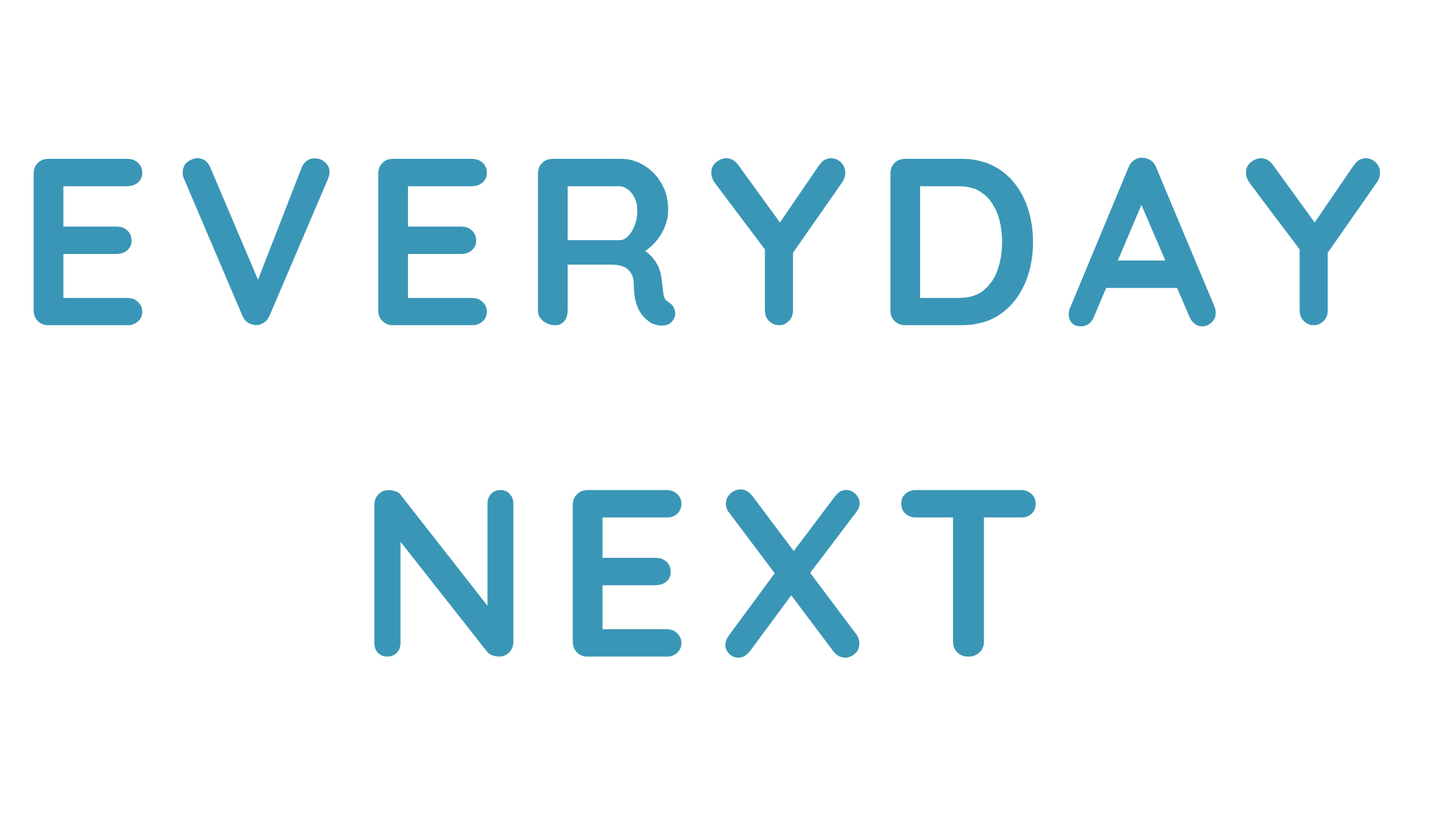

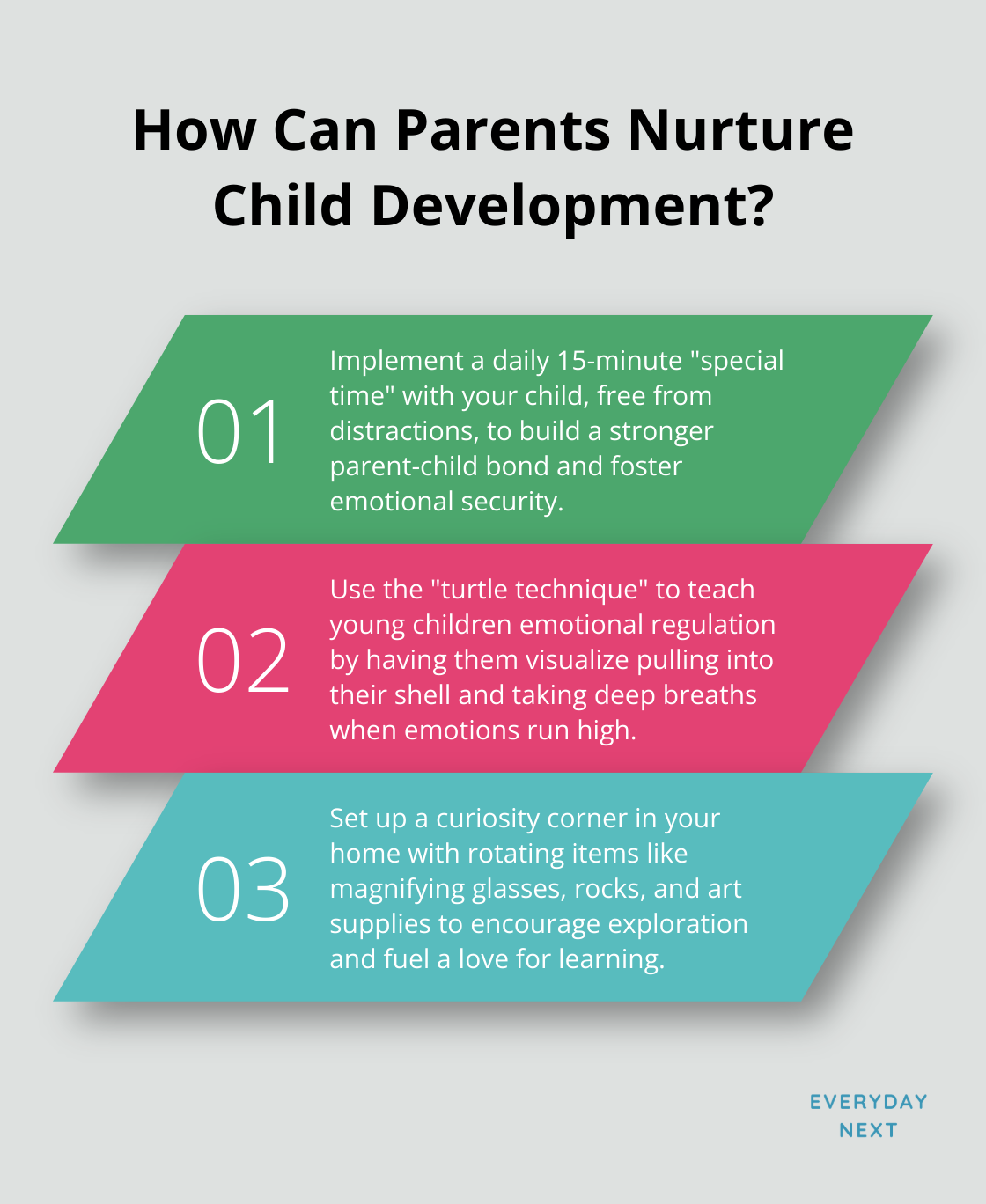
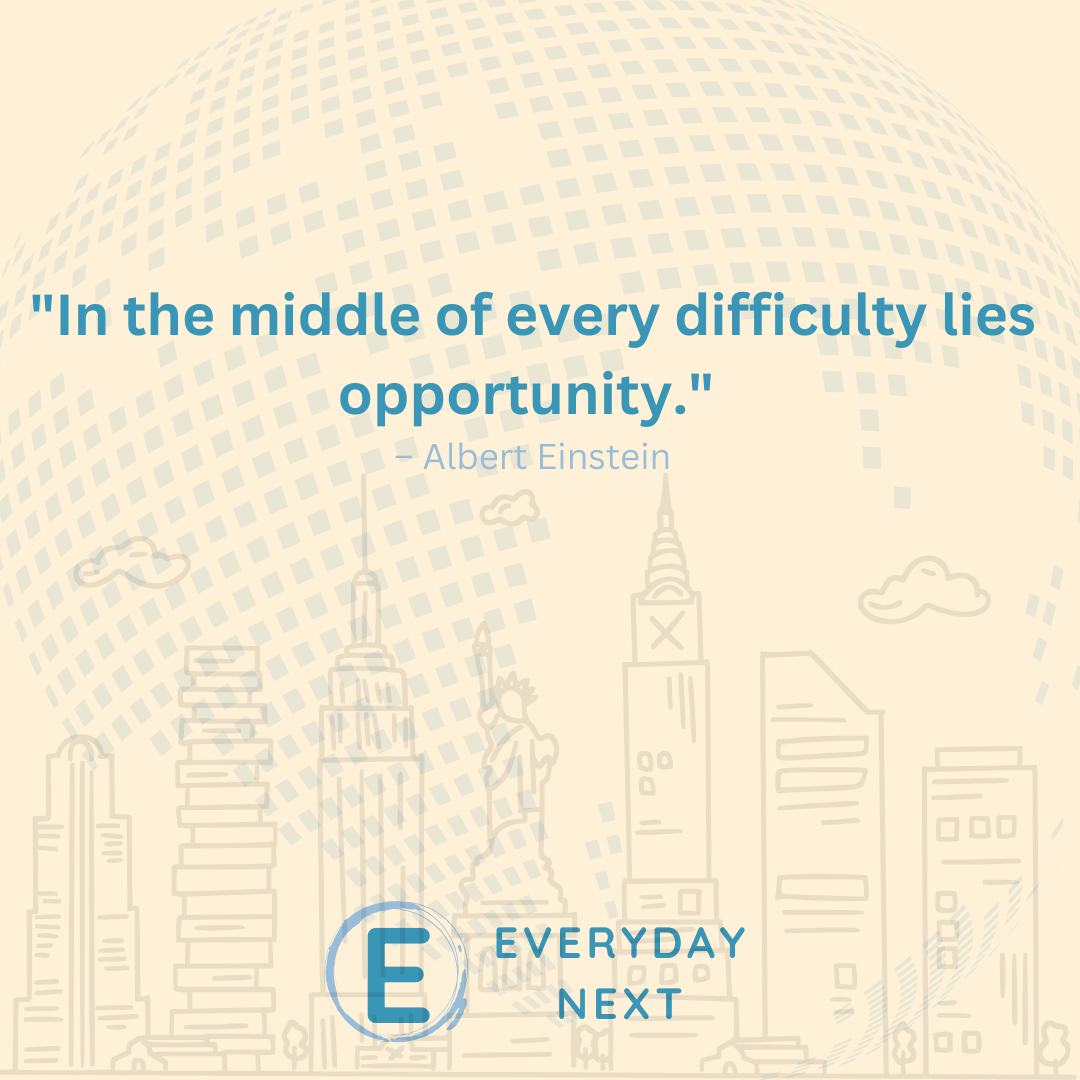
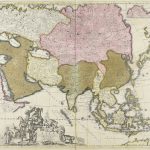
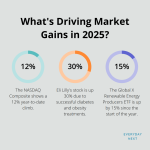
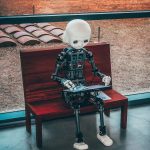



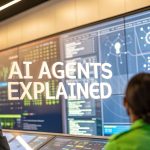
Pingback: How to Start a Business as a Teen Entrepreneur - Kaki Prod
Pingback: Canada election candidates 2025 - Kaki Prod
Pingback: 10 Degrees that pay the most in Canada - Kaki Prod
Pingback: Canada election candidates 2025 - Everyday Next
Pingback: Can Entrepreneurship Guarantee Success in Business? - Everyday Next